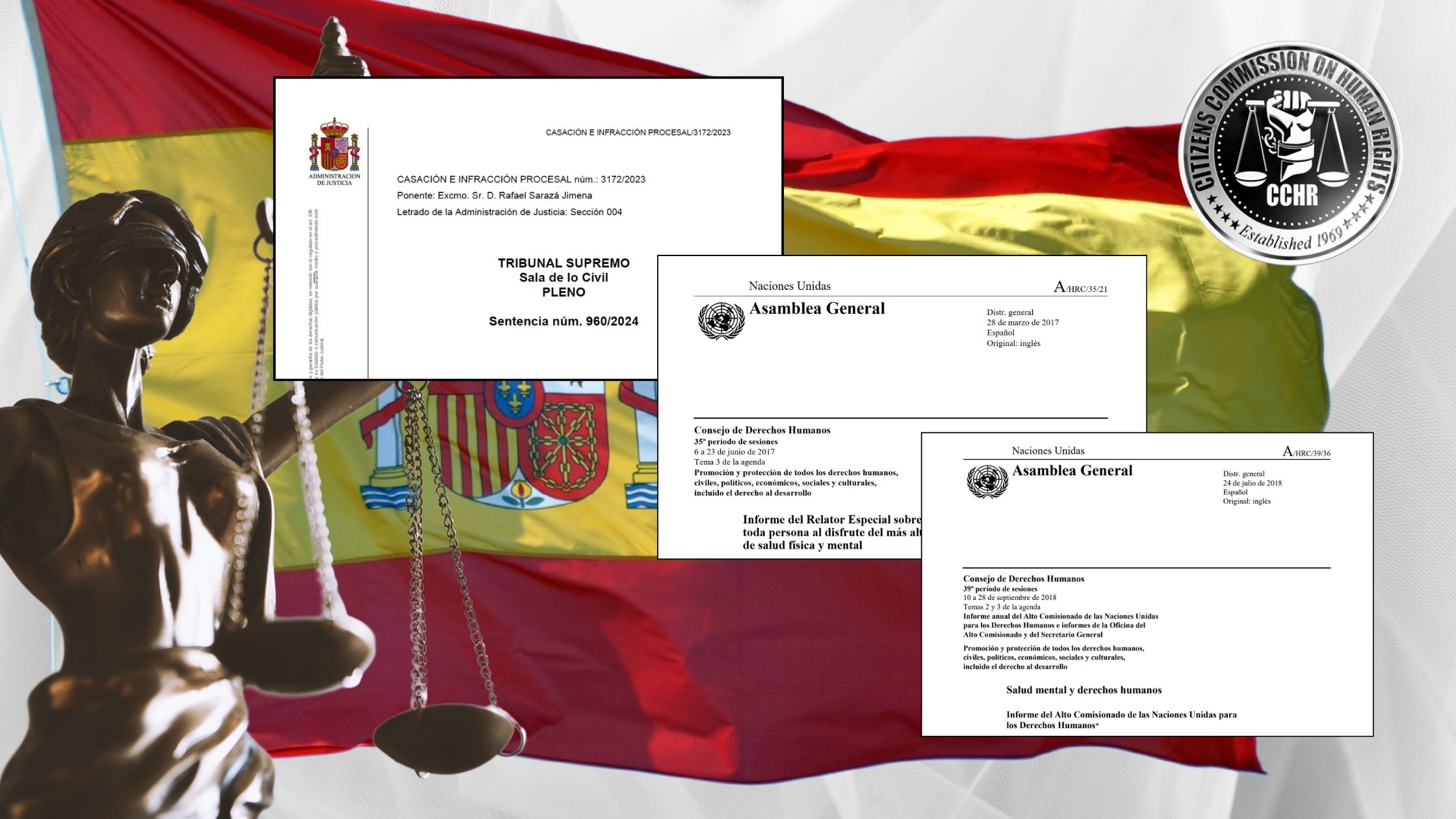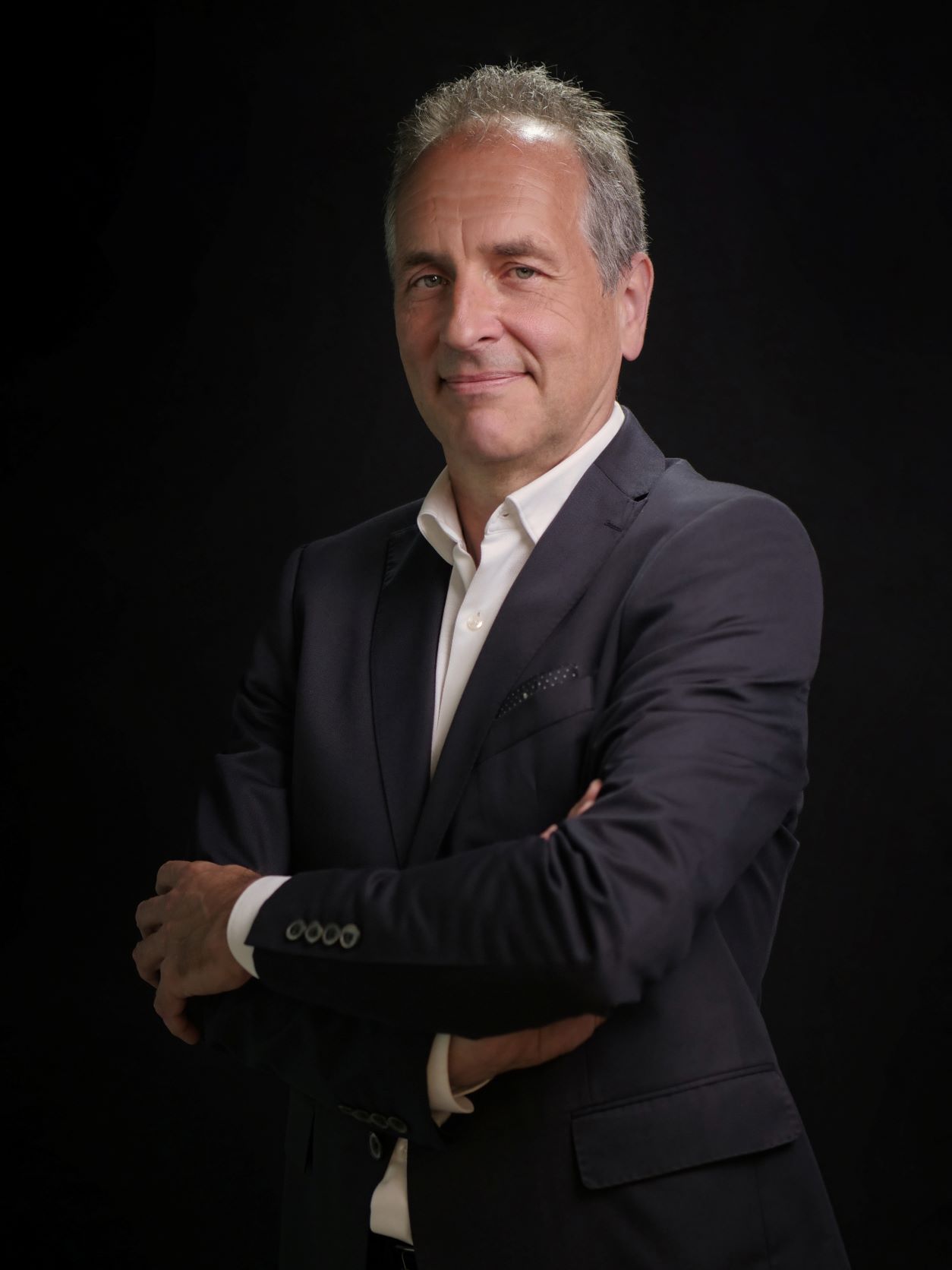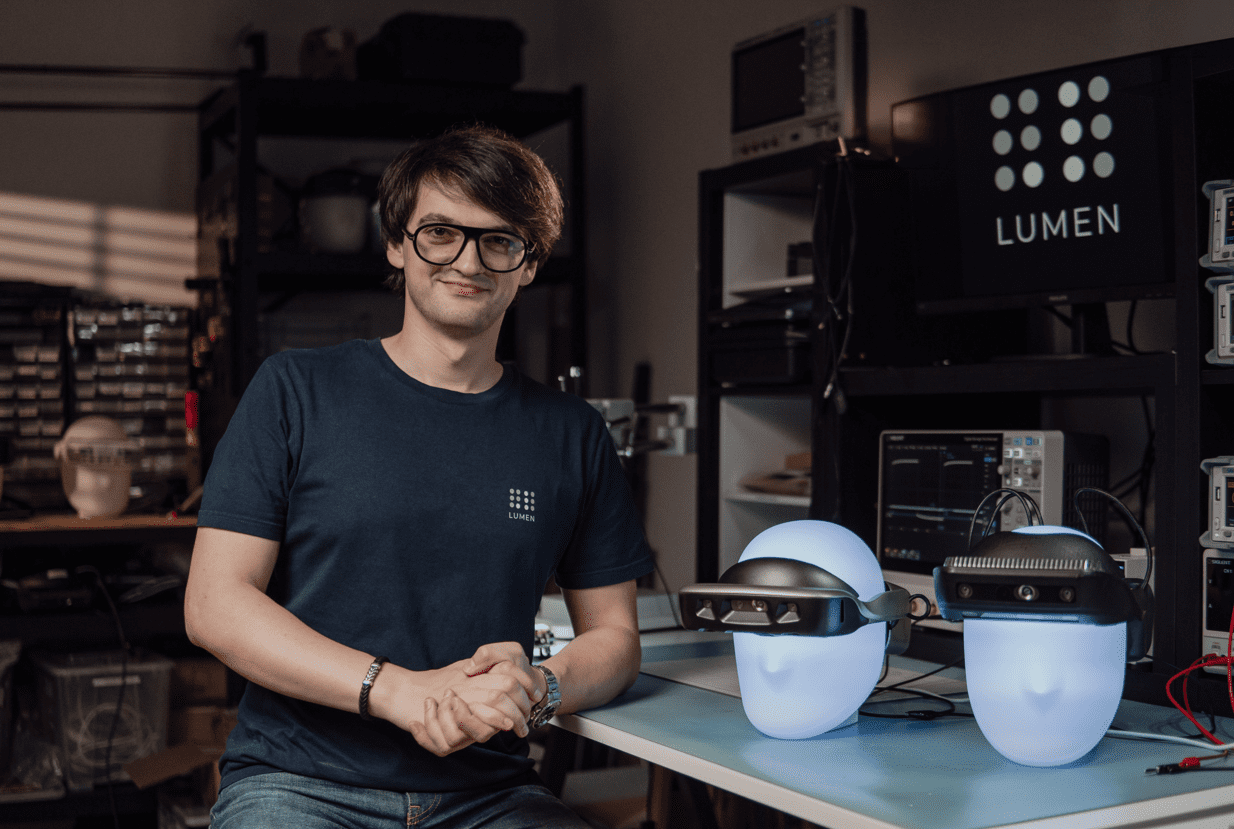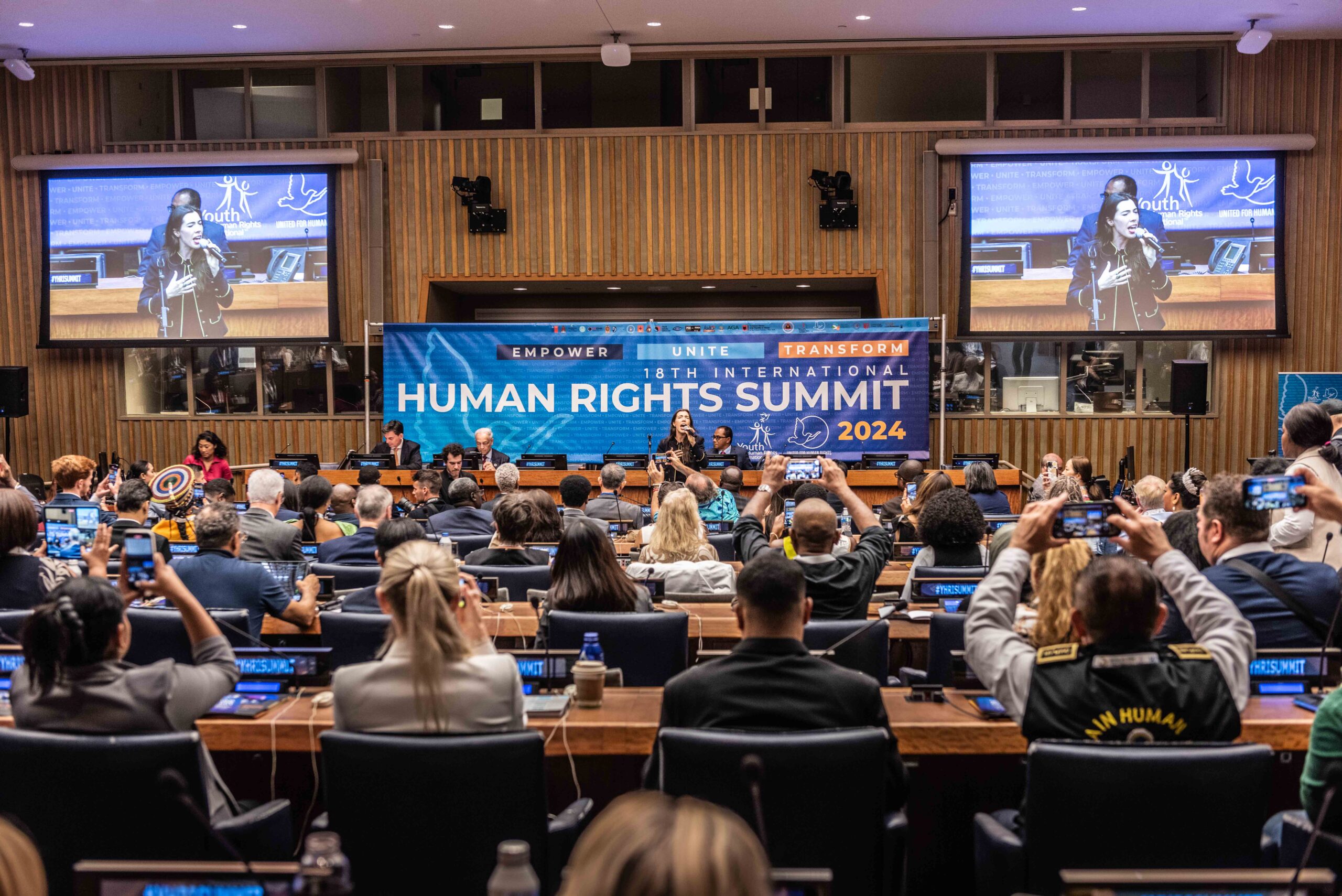SALUDMENTAL ( Original in Spanish ) The Plenary Session of the Civil Division of the Supreme Court, in its ruling STS 960/2024 of July 9th and published on the 12th in response to the appeal after its defeat in the Provincial Court of the Spanish Society of Psychiatry (SEP), admits that the opinions and harsh criticism that the Citizens’ Commission on Human Rights (CCDH and CCHR) makes of psychiatric abuses such as those made with the use of psychotropic drugs, involuntary institutionalisation, electroshock, psychosurgery and others, “are not devoid of a sufficient factual basis”, and therefore decides to protect the right to express them, even in a harsh manner, as they are of “undoubted general interest”, as transcribed in this extract from the judgment:
“The publications in question deal with a matter of undoubted general interest: the debate on certain practices in the field of psychiatry. The extensive documentation submitted by the defendants clearly shows the existence of this debate. The reports of the UN rapporteurs submitted by the defendants (specifically, the 2017 ‘Report of the Special Rapporteur on the right of everyone to the enjoyment of the highest attainable standard of physical and mental health’ and the 2018 ‘Annual Report of the United Nations High Commissioner for Human Rights’ on ‘Mental Health and Human Rights’) are a good illustration of the important social, political and scientific debate on the issues covered by the questioned publications.
The debate on certain psychiatric practices and, in particular, on involuntary institutionalization, the use of psychotropic drugs, especially when the patients are children or adolescents, or surgical or electroconvulsive treatments, is of particular importance in today’s society.”
Furthermore, the high court affirms, “despite the crudeness of some of its expressions (…), its content is directly connected to the public debate in a democratic society (…) And is part of the conduct observed by CCDH of actively intervening in the social debate on psychiatry through its publications.”
On this basis, the Supreme Court has ruled that the Spanish Society of Psychiatry (SEP) must bear the criticism of the Citizens Commission on Human Rights. (CCHR) and Comisión Ciudadana de Derechos Humanos de España (CCDH).
Salvador Fernández, President of the Spanish Citizens’ Commission on Human Rights, after learning of the sentence declared that:
“it is important that there be protection so that the innumerable abuses that are committed in the field of psychiatry are made known, and the time has come to carry out the drastic reforms called for by the WHO, the UN, and above all the victims, of a century-old system that has brought more pain than glory, we thank all those who work in one way or another to expose and put an end to psychiatric abuse, and from our team we encourage society to not remain silent and to denounce through www.saludmentalyderechos.org any and all abuses in the field of psychiatry, whether it be the labelling and administration of dangerous psychotropic drugs to children, forced treatment, lack of informed consent, involuntary institutionalization or the use of electroshock, which has been described as torture on numerous occasions by doctors and human rights experts.”
CCHR was co-founded in 1969 by the Church of Scientology and Professor Emeritus of Psychiatry Dr. Thomas Szasz as an independent mental health watchdog at a time when patients were institutionalized, mistreated, stripped of their constitutional, civil and human rights, and left to fend for themselves.
As stated by CCHR co-founder Thomas Szasz:
“They were then the only organization, and they still are the only organization, who were active in trying to free mental patients who were incarcerated in mental hospitals with whom there was nothing wrong, who had committed no crimes, who wanted to get out of the hospital. And that to me was a very worthwhile cause; it’s still a very worthwhile cause. We should honor CCHR because it is really the organization that for the first time in human history has organized a politically, socially, internationally significant voice to combat psychiatry. This has never happened in human history before.”
CCHR and national and local affiliates around the world have long fought to restore basic inalienable human rights in the field of mental health, including, among others, full informed consent to the medical legitimacy of psychiatric diagnosis, the risks of psychiatric treatments, the right to all available medical alternatives, and the right to refuse any treatment deemed harmful.
In the judgement of the Provincial Court of Madrid 64/2024 of February 10th, appealed by SEP, the courts explained that CCHR and CCDH:
“aims to fight against abuse in psychiatry and especially against the prescription by these professionals of drugs for the treatment of mental illnesses and diseases and its work has been recognised by the Special Rapporteur of the UN Commission on Human Rights who in 1986 stated that it had helped to pass numerous laws in the field of mental health in defence and preservation of the rights of individuals according to the Universal Declaration of Human Rights, members of the Committee on the Rights of the Child at the United Nations and various members of the US House of Representatives and the California State Congress and Senate.”
In its text, the Supreme Court’s judgement includes, on the one hand, the video documentaries where CCHR shows its evidence and strong statements, opinions and concerns:
“On the other hand, the website www.cchr.org.es, whose content is owned and managed by CCHR (Citizens Commission on Human Rights), provides access to 8 documentaries that explain what they consider ‘psychiatric abuse’.”
And also, the “informative material” found on the website https://www.ccdh.es of the Comisión Ciudadana de Derechos Humanos de España (CCDH) where there are 19 leaflets with very strong titles, such as “Child Drugging. Psychiatry destroying lives. Report and recommendations on fraudulent psychiatric diagnosis and enforced drugging of youth”; “Deadly restraints. Psychiatric ‘therapeutic’ assault. Report and recommendations on the violent and dangerous use of restraints in mental health facilities”; “Brutal Therapies. Harmful Psychiatric ‘Treatments’. Report and recommendations on the destructive practices of electroshock and psychosurgery”; or “Psychiatric Malpractice, the subversion of medicine. Report and recommendations on psychiatry’s destructive impact on health care», among others.
The Spanish Society of Psychiatry complained about demonstrations in which CCDH and others claimed that “psychiatrists are criminals, precursors of genocides, responsible for the erosion of education and justice, inciters of drug addiction, drug traffickers, fraudulent practitioners or managers of violence and terrorism, that some psychiatrists sexually abused their patients and even that ‘[t]here are an undetermined number of coercive abortions in Spain by psychiatrists’, involvement of German psychiatrists in the Nazi holocaust [for which the German Psychiatric Association has publicly apologised], racial discrimination” and other descriptions and statements of fact.
The First Civil Chamber of the Supreme Court concluded that the judgment appealed by SEP had correctly applied the case-law criteria to resolve the conflict between freedom of expression and the right to honour.
And with regard to the context in which the statements in question were made, despite the fact that some of them could be considered serious, says the ruling, CCDH’s conduct in making these publications is part of a public debate of great importance in today’s society, so that agreeing to remove such publications would be an excessive restriction on freedom of expression that would not be justified by an imperative social need.
The SEP also complained about statements, such as that of psychiatrist Dr. Thomas Szasz when he says “Psychiatry is probably the most destructive force that has affected society in the last 60 years’, or ‘Psychiatry serves as a social control machine that sometimes becomes an agent of social and political revenge”, among other imputations.
The SEP argued that freedom of expression should not cover such statements, which the Supreme Court has contradicted, finding that the statements and criticisms of CCDH and CCHR are disseminated in a public debate on psychiatry.
The Supreme Court’s ruling reiterates the importance of freedom of expression in the context of debates of public interest, even when criticism may be offensive to certain entities or professionals, in line with what was said by the court of appeal. And it is here that the Supreme Court states that:
“This prevalence of freedom of expression over the right to honour when expressing opinions on matters of general interest occurs even when the expression of opinion is made in a rude, unkind or hurtful manner and may annoy, disturb or upset the person affected by the statements in question, as this is required by pluralism, tolerance and a spirit of openness, without which there is no democratic society.
As the judgments of the ECHR of 8 November 2016, Magyar Helsinki Bizottság v. Hungary, 13 March 2018, Stern Taulats and Roura Capellera v. Spain, 20 November 2018, Toranzo Gómez v. Spain, and 11 May 2021, Halet v. Luxembourg state, freedom of expression does not only protect ideas that are favourably received or considered inoffensive or indifferent, ‘but also those that offend, shock or disturb’. And Constitutional Court judgment 226/2016, of 22 December, citing previous judgments, states that ‘within the broad framework granted to freedom of expression are protected, according to our doctrine, “those manifestations which, although they affect the honour of others, are revealed as necessary for the presentation of ideas or opinions of public interest”’.














